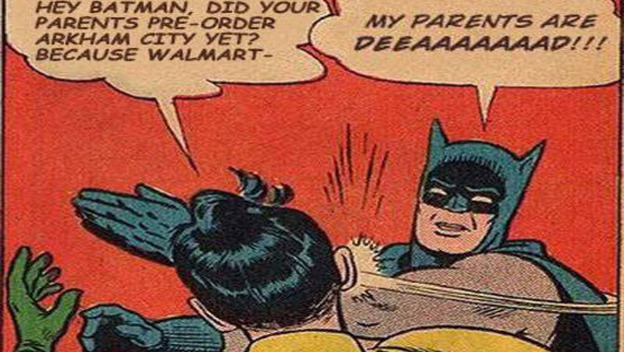Did you know that PRE-ordering is POST-bull sh*t?
We find ourselves in the midst of an exciting few weeks. With the PS4 recently released and the Xbox One due out this Friday, I guess you can say we’ve officially started the next-gen. After that, we’ll move into what they call the “launch window,” which is just a fancy way of describing the weeks and months to follow a launch, where everything will still have that new-console smell. So, with all eyes currently fixed on the world of gaming, I’ll attempt to steal a bit of your attention away from the excitement of the new launches for a moment. This is my effort to bring to light several issues in the gaming industry that have gone unchecked for far too long. Recently, I highlighted just how detrimental the concept of purchasing pre-owned games is to the industry (which steals revenue and lines the pockets of companies like GameStop).
Now, it’s time to examine the flip side of that coin: the out-of-control pre-order racket.
You noticed I used the word “racket,” right? That’s deliberate, as once you realize just what a scam it is, you’ll actually want to hit someone with a racket. So let’s retrace our steps and first examine its origins. If you were to ask any gamer on the street what they feel the purpose of pre-ordering is, you’d almost clearly get a resounding “to guarantee my copy on launch day” response. However, did you know (even if it did start out this way) the concept has become twisted to nothing more than a marketing strategy? Yup, any so called “bonus” you receive has nothing to do with saying thank you, but rather tricking you into thinking you’re getting something for nothing. The way it works is this: companies spend tens (if not hundreds) of thousands of dollars on a marketing campaign for a title. Even if the title isn’t completed yet, they’ll cut together a trailer (some with very little in-game content depicted) and then sit back as GameStop constantly pushes customers at the register to drop an extra $5 to pre-order X game. Now, imagine a giant applause meter back in the marketing board room. If the pre-order figures are high, the applause meter goes up, and if they are low…well…you get the idea.
Essentiality, a pre-order is your stamp of approval on a game you’ve never played. Therefore, if the pre-orders are high enough, you’ve already given the developer a green light to push it out the door (even if the game could use a bit of polish). I mean, why not? We’ve already promised them a guaranteed sale on a completely unknown item. At this point, what motivates them to go the extra mile to earn your gaming dollars? In their mind, it’s already in their pocket. On the flip side of this, how many games (with huge potential) never saw the light of day because the pre-orders were too low to justify finishing the project? More than a few, I imagine. Also, what of the artificial shortages that is trumped up by some companies in order to make demand seem higher for their product than their competitors? Sounds conspiratorial…but it’s happening.

Not to mention the fact that we have effectively propped up a system that allows game companies (in cahoots with retailers like GameStop) to regularly sell us 90% of the title we just purchased. Remember the wonderful little “bonuses” I mentioned earlier? The vast majority of these gems are content you’ve already paid for, now tucked away on the disc. Whether its side missions, skins, or characters, there is a reason why the DLC for many titles is only a few kilobytes in size when you download them. It’s because they are simply removing a piece of code that was intended to hide it from you. This is a prime example of how the industry has seriously veered off into a greedy ditch. I do understand this is the video game BUSINESS. The problem is, the business practices have gone from bolstering good will among the consumers who support them to companies seeing us as a resource to be mined and harvested (effectively squeezing every possible dime from each and every customer before releasing us back into the wild).
The final example I point to is the digital pre-order. Did you hear what I just said? Microsoft and Sony are now in the practice of offering you a pre-order on their DIGITAL releases. Can anyone explain to me why, for the love of Mario, I need to “guarantee” my copy of something that can be easily duplicated an infinite number of times? There is absolutely ZERO chance they’d run short on supply, as the digital copy doesn’t physically exists. Can someone please write this down in a book somewhere as the last and final straw? Please?
Consider the evidence my gaming brethren. The business side of the game industry is in need of a serious revolution. Will you lead or follow?
